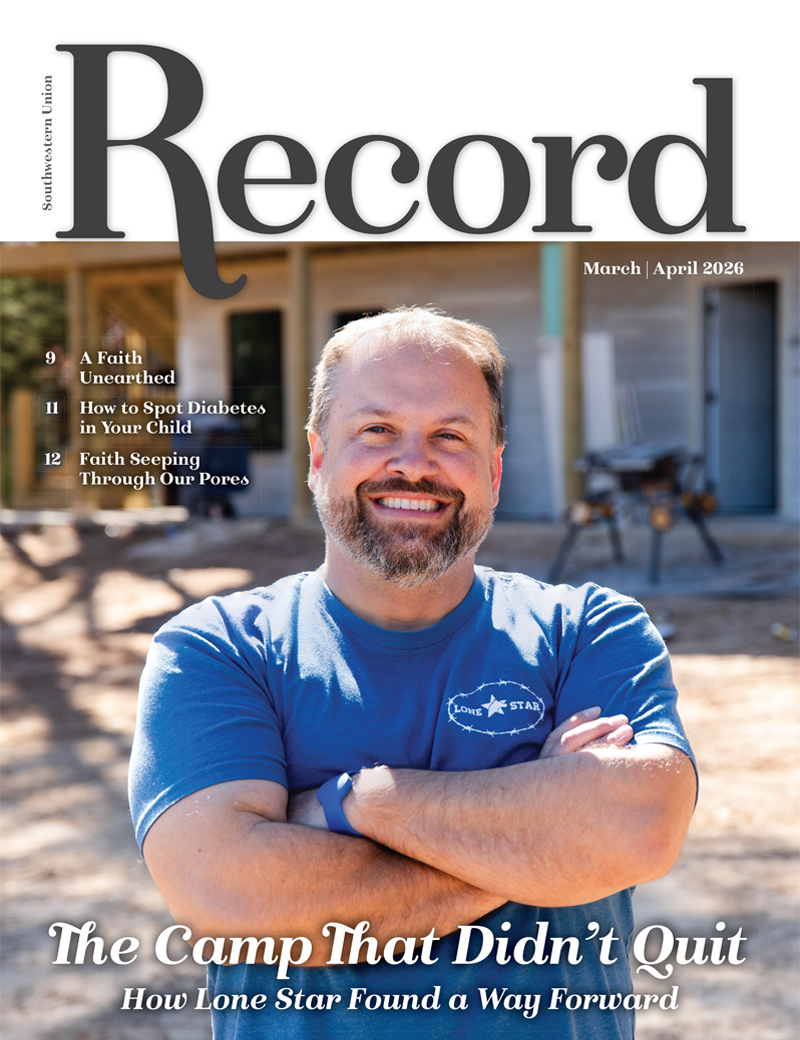The Honors Journey Through the Roots of American Music

NEW ORLEANS – Southwestern Adventist University’s (SWAU) Honors Program toured Memphis, Nashville and New Orleans this year. Six students, two faculty and several guests learned about the history of gospel, blues and jazz music—and how musicians worked closely with the civil rights movement in the 1950s and ’60s.
Their first stop was Memphis, where gospel music was played over the country’s first Black-owned radio station. Such music strongly influenced other musicians, especially blues guitar players, who often made the trip up the river from the Mississippi Delta to Memphis. They played on street corners, and many made records—making Memphis the most important musical city in America at one time. SWAU Vice President for Spiritual Development Russ Laughlin joined the group in Memphis and stayed for the next four days as they visited several museums devoted to our unique American musical heritage. They also toured the National Civil Rights Museum, built on the spot where Martin Luther King Jr. was assassinated. And yes, they visited Graceland, former home of Elvis Presley—who has sold more records than anyone else.

Next was Nashville, Music City, where the group had a guided tour of the Ryman Auditorium. Their guide clearly loved his job and proudly showed photos of hundreds of stars, past and present, who have played in the Ryman—originally constructed as a church and later reconfigured into a musical stage. The group attended a country music concert, which contained performances by many musicians, including Grammy Award winner Ricky Skaggs. The following morning, the group toured the Country Music Hall of Fame before heading for New Orleans.
On Sabbath, the students joined worshipers at the New Orleans United Fellowship Seventh-day Adventist Church. A welcoming congregation helped them feel right at home. The group heard wonderful music and joined in singing praise songs.
Sunday was a busy day, with brunch, beignets at Café du Monde and an evening concert at Preservation Hall, listening to the famous Dixieland jazz band. In introducing the musicians, the pianist mentioned that several of the group were fifth-generation musicians, and everyone was at least a second-generation musician. The oldest musician in the group was 93 and the youngest (a bass player) was in their mid-20s. This experience inspired what would become the last question in the students’ final exam: Explain how jazz seems to transcend ages and appeals to diverse people of all ages.

On Monday, the group wrapped up its events with lunch aboard the steamboat Natchez while listening to their jazz band. They capped the tour with supper at the vegetarian restaurant True Food before returning to SWAU on Tuesday.
The trip provided students the opportunity to engage deeply with the places and stories that shaped America’s musical and cultural history—leaving them with lasting insights and inspiration.
By Renard Doneskey, Ph.D.


